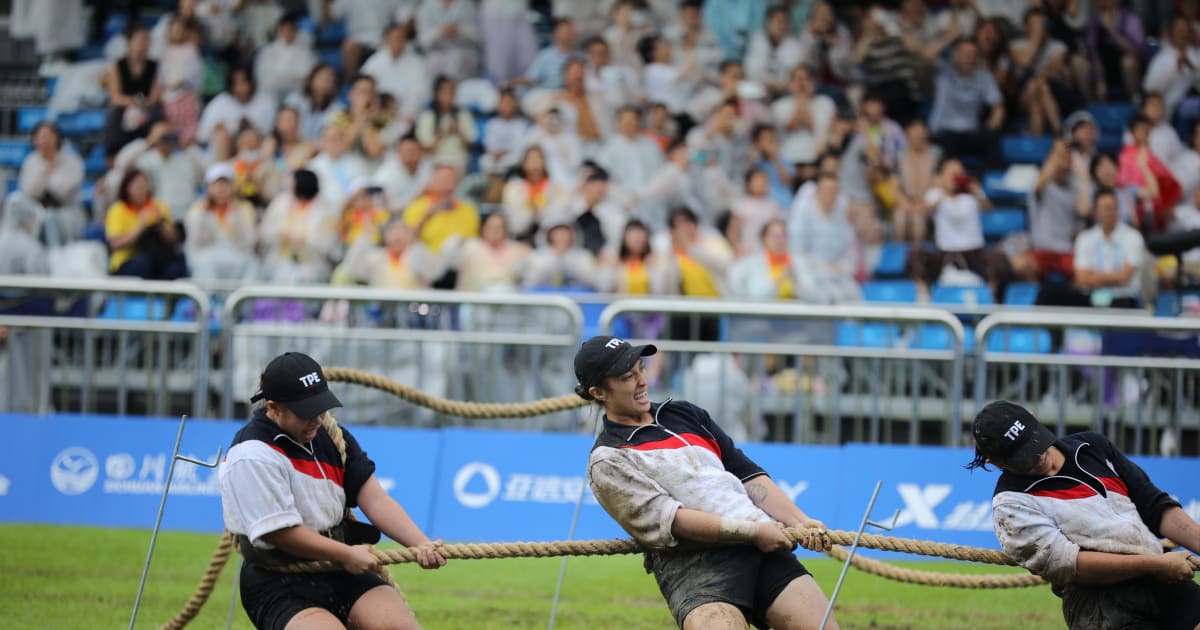The simple, yet effective strategy powering a tug of war dynasty
Tien’s words above are more than mere puffery. Since the introduction of women’s tug of war to The World Games in 2005, Chinese Taipei have maintained an unwavering iron grip on the event.
Contesting 84 pulls in total, across six editions of The World Games, the team has yet to lose a single pull despite changes to the surface and maximum allowable weight per team.
It’s a feat that’s left fans, athletes and media alike asking: how are they so dominant?
The answer – according to Tien – is surprisingly simple.
“It’s all about steady, step-by-step, down-to-earth training,” argues the three-time World Games champion.
“The process of preparing for a competition is extremely important,” she explains, noting the complexities of maintaining a well-oiled tug of war machine, such as the Chinese Taipei women’s team.
“In training and in matches, we inevitably run into difficult moments, but we work together to gradually find the team’s rhythm.”
Tug of war – it would seem – is more than an exercise in brute strength and bravado. It requires coordination, cooperation, stamina and collective strength, not to mention copious amounts of individual and collective determination – something the Chinese Taipei team doesn’t lack.
“Our coach has worked incredibly hard, and you can see it on television,” states Tien. “Despite his physical challenges (disability), he overcomes difficulties to train us.”
“From him, we’ve learned the value of willpower and the spirit of never giving up.”
It’s a spirit that shone through when the rains began to fall at The World Games 2025, creating muddy and chaotic conditions at the Dong’an Lake Sports Park Central Square.
“From the very first match to the last one, we had both good moments and not-so-good moments,” admitted Tien, showing how even the most dominant forces in sport can still succumb to the pressures of competition – even if the end result is still the one they fancied all along.
“Thanks to the training we did beforehand, we were able to improve step by step throughout the competition,” she added. “We took it match by match, and when our form clicked in the later stages, we were able to perform our very best on the big stage.”
When asked how it felt to maintain her team’s undefeated streak, Tien told Olympics.com, “I’m very happy, because we had prepared thoroughly for the sixth consecutive title, and in the end, we were able to show our very best on the field.”
